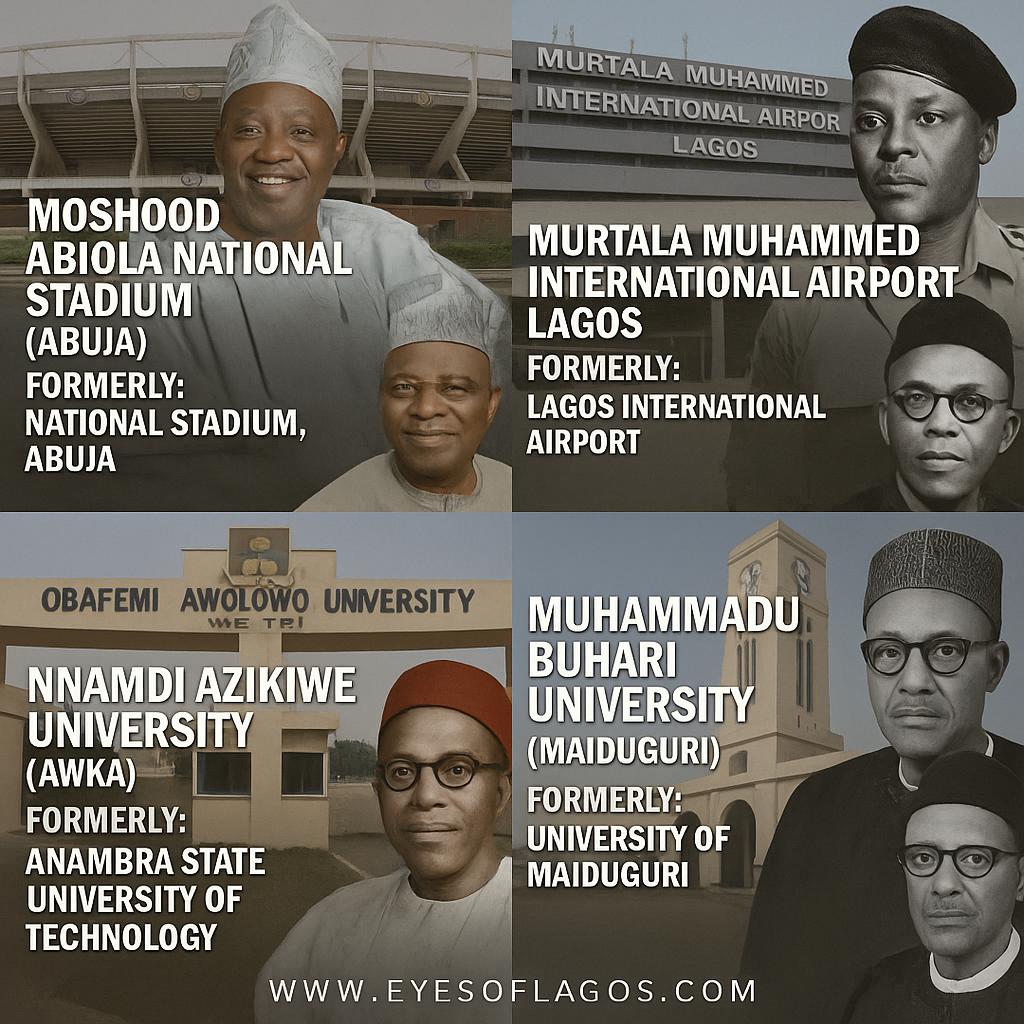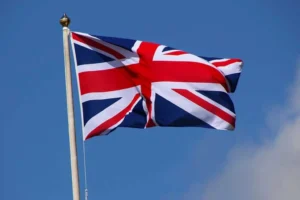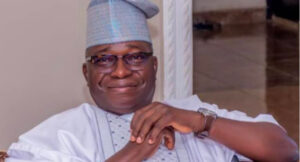In Nigeria, even important places like airports, universities, and stadiums are not left untouched when it comes to politics. Government officials often rename these places after political leaders—sometimes to honour them, sometimes to push a certain image. This act has become quite common, and Eyes of Lagos shares five places that have recently been renamed, along with the reasons behind the changes.
The National Stadium in Abuja was renamed in 2019 by President Muhammadu Buhari in honour of MKO Abiola, the man believed to have won the 1993 presidential election, which was later cancelled. Buhari made this announcement on Democracy Day as a way to recognise Abiola’s sacrifice for Nigeria’s democracy. Many people saw it as a deserved honour for someone whose story remains a big part of Nigerian political history.
Back in 1976, just after General Murtala Muhammed was killed, the Lagos International Airport was renamed in his memory by General Olusegun Obasanjo, who took over leadership after Murtala’s death. Today, the Murtala Muhammed International Airport is Nigeria’s busiest and still reminds people of one of the country’s boldest reformers.
In 1991, the Federal Government changed the name of Anambra State University of Technology to Nnamdi Azikiwe University. This was done to honour Nigeria’s first president, Dr. Nnamdi Azikiwe, also called “Zik of Africa.” The university became a federal school that same year. For many, especially in the South-East, the name change is a symbol of pride and a way to remember a leader who helped push for Nigeria’s independence.
In 2025, President Bola Tinubu announced that the University of Maiduguri would be renamed Muhammadu Buhari University. The announcement was made during a government meeting held to pay tribute to Buhari. While some Nigerians welcomed the change, others questioned whether Buhari’s leadership truly deserved that level of recognition. To them, it seemed more like a political move than a genuine honour.
Back in 1987, the University of Ife was renamed Obafemi Awolowo University by the Federal Government. This was a popular move, especially among Yoruba people, since Awolowo was known for promoting education and visionary leadership. Even today, students of the school proudly associate themselves with his name and the values he stood for.
Although some of these name changes are seen as acts of respect for true national heroes, others feel more like political tactics. Nigerians are beginning to wonder what’s next—maybe even renaming the Third Mainland Bridge after someone’s relative. It’s clear that in Nigeria, the name of a place is more than just a title—it often carries deep political meaning.







